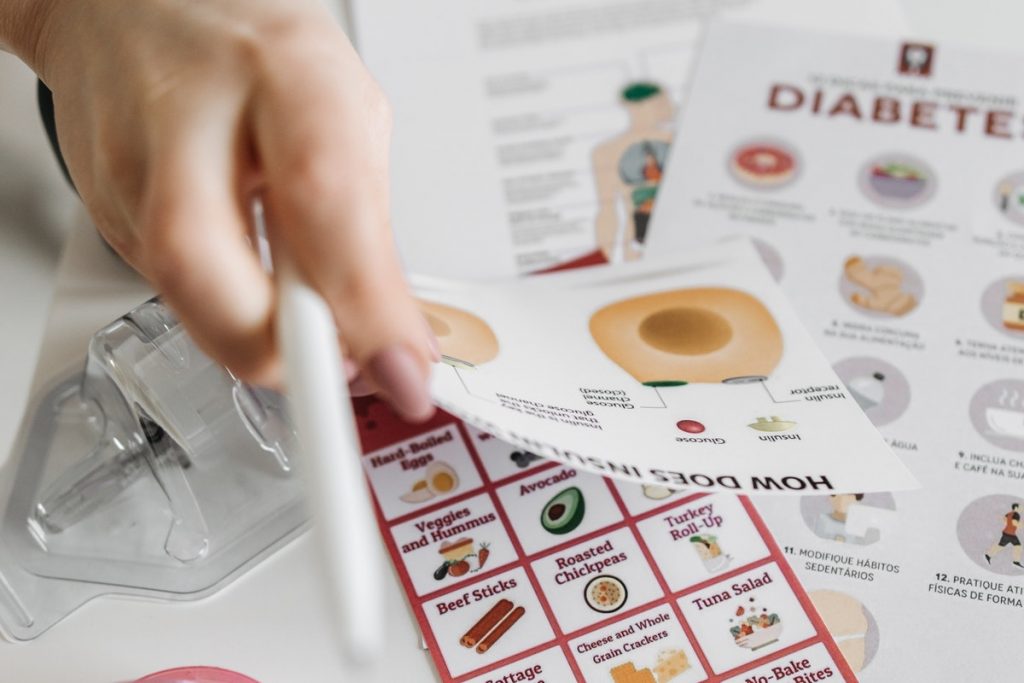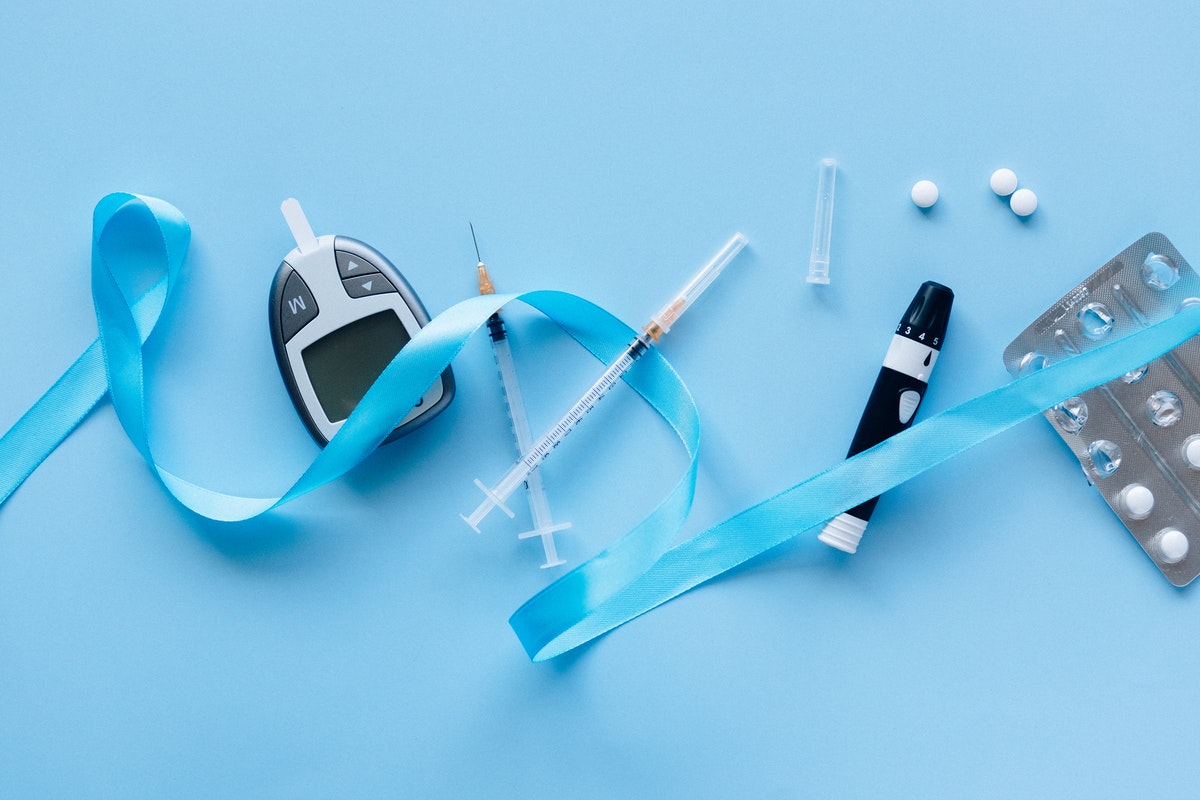Diabetes is one of the most common diseases all over the world. As the disease becomes increasingly prevalent, the misconceptions and myths associated with it are also running rampant.
According to the latest figures by the World Health Organization (WHO), every tenth person in the United States of America has diabetes, whereas the global figure of the number of people who are living with diabetes is 422 million.
A few different types of diabetes exist as well, the three most common forms being: type 1, type 2 and gestational diabetes. If you have diabetes or suspect that you may have it, your endocrinologist will guide you in terms of how you can effectively manage this condition.
The Common Types of Diabetes

Type 1 diabetes is a disease wherein the body’s immune system attacks its own pancreas cells, which create insulin. Compared to type 2 diabetes, Type 1 usually occurs at an early age.
Type 2 diabetes is where the body is unable to manage the insulin production; either it’s not making enough, or does not react to insulin the way it should, or sometimes both. Type 2 diabetes is far more common, and according to the World Health Organization, 90 percent of all diabetics suffer from type 2.
Gestational diabetes is a temporary condition that may happen during pregnancy. As the body requires more insulin while pregnant, sometimes the body cannot manage these new requirements resulting in Gestational Diabetes. Although gestational diabetes usually lasts only till birth, women who develop it during their pregnancy have a higher chance of developing type 2 diabetes later on in life.
Diabetes is a term most of the world’s population is familiar with, but that has not curbed the spread of misinformation about the condition. This is largely because it’s a complicated condition where the symptoms vary from one person to another.
The Popular Myths Surrounding Diabetes

Myth: Eating too much sugar, desserts, candy and drinking sugary soda will cause diabetes.
Fact: Although carbohydrates, especially those derived from sweets and sweetened beverages, can quickly raise your blood sugar, it’s not the only contributing factor that could cause this condition to develop.
You are at a higher risk for developing type 2 diabetes if you consume excessive sugar, processed carbohydrates and unhealthy fats on a regular basis and have a very low level of daily physical activity. However the amount of sugar you consume, or any other poor lifestyle choices, cannot cause anyone to get type 1 diabetes.
Myth: You are safe from diabetes if you are skinny.
Fact: This is untrue. Even though obesity, and especially belly fat, greatly increases the risk for developing type 2 diabetes, just the fact that someone is skinny will not protect them from developing diabetes. There are many other factors that contribute to the risk of developing diabetes. These include age, gender, ethnicity and most importantly, family history. Type 1 diabetes is not related to age or weight.
Myth: Only people with type 1 diabetes are required to take insulin.
Fact: Both Type 1 and 2 diabetes can be managed using insulin treatment. Even if someone with type 2 diabetes is prescribed insulin, it does not imply that their type 2 diabetes has turned into type 1. Type 1 and type 2 diabetes are very different from each other. Diabetics with type 1 diabetes need insulin to survive and are prescribed insulin from diagnosis.
Myth: You can’t eat any carbohydrates if you are diabetic.
Fact: Carbohydrates are a necessary energy source and are very important to fuel many body functions like brain activity. A balanced diet that includes healthy, high fibre carbohydrates in moderation is imperative. You may want to avoid processed starchy carbs or ultra-sweet tropical fruits though.
Myth: Binging on sugar-free snacks is OK.
Fact: Unfortunately, that is untrue. Carbohydrates, sugar free or otherwise, are converted to glucose (sugar) during digestion. It is important to keep track of carbohydrate consumption as a diabetic. Snacks are OK, buy only in moderation.
Myth: Insulin is an enemy to health.
Fact: Insulin is not bad for you. Our bodies produce insulin as a normal function. It is only when your body is unable to manage the necessary insulin levels required, that diabetics have to inject it artificially.
Myth: Type 1 diabetes is diagnosed in childhood only
Fact: Although Type 1 used to be called juvenile diabetes, this condition can develop in, and be diagnosed, at any age.
Myth: Only adults can get type 2 diabetes
Fact: We have seen an increasing number of young children being diagnosed with type 2 diabetes as well. With the regular consumption of unhealthy fast food, and limited physical activity among children, many children are also being diagnosed with type 2 diabetes. The number of children being diagnosed with type 1 diabetes is also on the rise.
Myth: Diabetes can be cured.
Fact: Unfortunately, the onset of diabetes is irreversible. Regardless of the type, Diabetes cannot be cured. However, it can be managed. You can control and manage your diabetes by making better food and lifestyle choices. Exercise can also alleviate symptoms. However, if you have type 1 diabetes, insulin is a lifelong necessity.
Be Informed About Your Health

Myths have no place in health care. These mistaken notions not only prevent you from living a normal life with diabetes. But believing in and practicing them could endanger your condition, turning what should be a mild case into a severe one.
Any questions you have about your diabetes should be put forth to your attending physician. Your doctor is the only professional who can tell you how to manage one of the world’s most common diseases.




